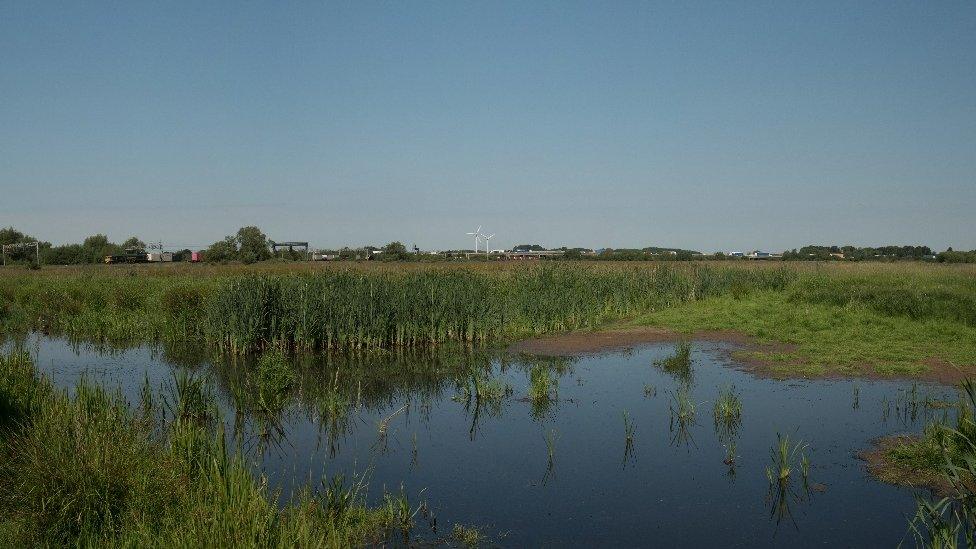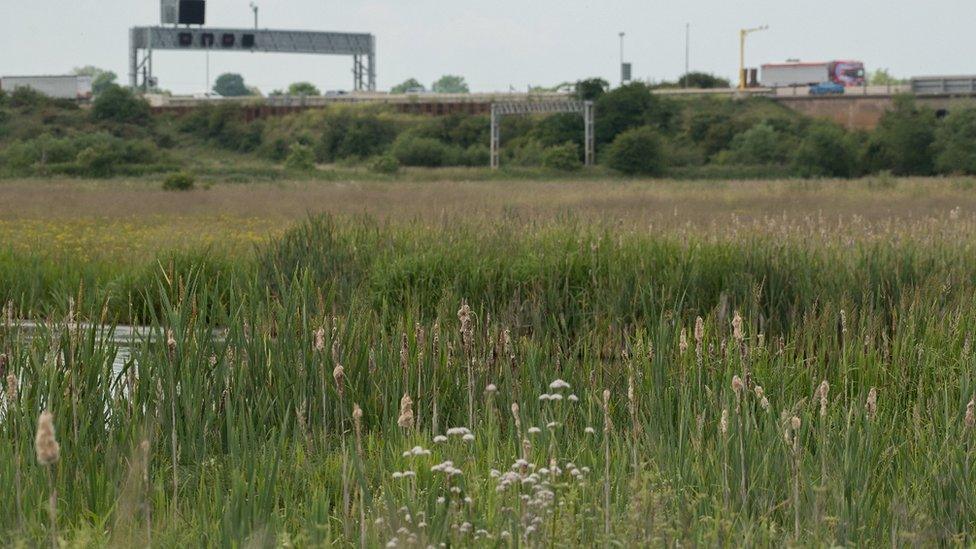Plans for £4.1m Stafford roadside wildlife project
- Published

Doxey Marshes is among the areas to benefit from the Stafford Brooks project
Plans have been revealed for a £4.1m scheme to improve wildlife habitats and alleviate flooding alongside roads.
The Stafford Brooks Project targets 25 locations near local rivers and streams to address roads' environmental impact.
The scheme is being funded by National Highways in partnership with Staffordshire Wildlife Trust, Stafford Borough Council and the Environment Agency.
The trust said the plan would "help tackle nature and climate crises".
The project intends to create spaces for wildflowers, trees and wildlife where the environment has been impacted by activities from previous road building.
Natural solutions including new wetlands and reed beds are designed to help filter polluted run-off from roads.
The plan is to extend, restore and create new habitats which could become home to wildlife including otter, a range of amphibians, and wading birds such as lapwing and snipe.

National Highways has been conducting upgrade work on the nearby M6
Floodplains will also be restored to increase their ability to trap water when river and waterway levels rise and pose risk to nearby homes and businesses.
The announcement comes as National Highways has been upgrading the nearby M6 between junctions 13 for Stafford and 15 for Stoke-on-Trent.
National Highways development and sponsorship director, Peter Smith, said: "We appreciate there has been some disruption while we upgraded the M6 but we are able to give something back to the community with projects like Stafford Brooks, the benefits of which will be enjoyed for years to come."
David Cadman, head of nature recovery networks for Staffordshire Wildlife Trust, added: "Not only will this project improve biodiversity and water quality, it will also help tackle the nature and climate crises as the improvements will increase carbon storage and reduce the risk of flooding."

Follow BBC West Midlands on Facebook, external, Twitter, external and Instagram, external. Send your story ideas to: newsonline.westmidlands@bbc.co.uk, external